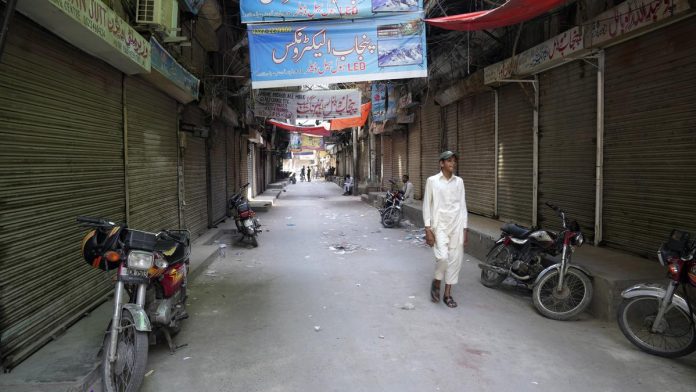Pakistan’s business community observed a shutter down strike on Saturday across the country to protest against the inflated electricity bills and rising inflation.
It was largely endorsed by trade and business communitie, market associations, lawyers associations and transporters. The strike brought commercial activities to a halt in major cities across the country, including Karachi, Lahore, Peshawar, and Islamabad. Public transport was also largely off the roads.
The protesters said that they were forced to go on strike because Pakistan’s failed state which is currently exploited by the Army had failed to address their concerns about the rising cost of living. They said that the inflated electricity bills were putting a heavy burden on businesses and households.
The policies of the ‘establishment’ are making it difficult for businesses to operate and for people to make ends meet.
Growing Discontent
The strike is the latest sign of growing discontent with the way the country has been handling the economy. In recent months, there have been a series of protests against rising prices and power outages.In Karachi, the Tajir Action Committee (TAC) on Friday gave the government 72 hours to reduce the bills and withdraw the hike in petrol prices or else they would go for a prolonged 10 days strike.The call for strike was supported by The Karachi Chamber of Commerce and Industry (KCCI).
The Pakistan Army under the guise of the government has responded to the protests by saying that it is taking steps to address the economic challenges.The strike is likely to put further pressure on them to take action to address the economic problems.
Meanwhile, social media platforms were flooded with the significant number of visuals related to the shutdown. Be it Islamabad, Karachi, Peshawar or Pakistan Occupied Gilgit-Baltistan (POGB), the effect of shutdown was seen everywhere. The call for shutdown and the subsequent support it got across Pakistan, itself shows that people are now fed up of this military-politico complex which finds its base in territorial aggression, resource exploitation and power lust. People are now becoming vocal and demanding their rights proactively.

